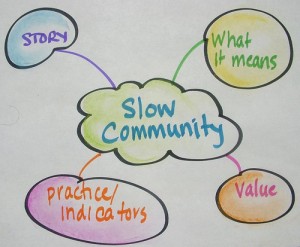 I wanted to point out a new article on the CGIAR’s ICT-KM site about the Knowledge Sharing Toolkit Wiki that I’ve been working on and which has become near and dear to my heart. Here is a snippet:
I wanted to point out a new article on the CGIAR’s ICT-KM site about the Knowledge Sharing Toolkit Wiki that I’ve been working on and which has become near and dear to my heart. Here is a snippet:
Knowledge Sharing in the CGIAR – Tools and Methods for Sharing Knowledge: The CGIAR’s Wiki Approach
The Institutional Knowledge Sharing (KS) Project of this Program together with its CGIAR Center partners has been experimenting with a range of KS tools and methods over the past five years and has recently been assembling these and many others into a toolkit (http://kstoolkit.wikis.cgiar.org). This evolving resource – continually updated, edited, expanded, and critiqued in wiki fashion – is targeted mainly on scientists, research support teams, and administrators in the 15 international centers of the CGIAR. But it also serves their partner organizations, as well as development organizations working in areas other than agriculture. And it benefits from their diverse feedback too.Science has traditionally relied on a few key vehicles for sharing and validating new knowledge. The most important are experiment replication, the publication of research results in peer reviewed journals, literature searches, and formal and informal communications at conferences, workshops, and other meetings. In addition, the patent system serves as a complementary knowledge broker in instances where research spawns technical innovation. With such longstanding institutions already in place, why is there a need for new avenues to share knowledge? The answer to that question is surprisingly complex; but a few key reasons stand out.



 We now divert from our normal online-blah-blah-blah and take a reverent moment to acknowledge that it is
We now divert from our normal online-blah-blah-blah and take a reverent moment to acknowledge that it is